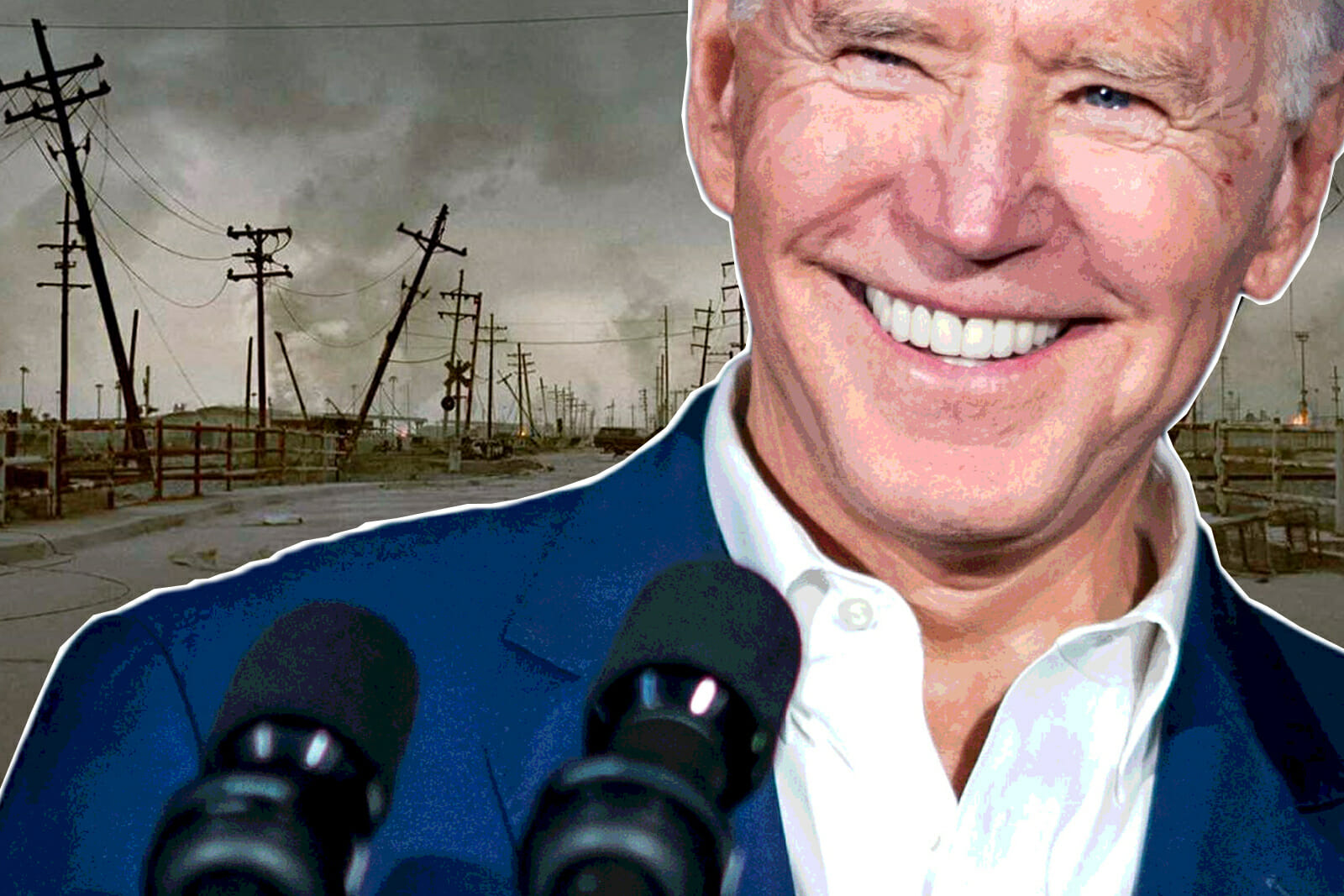
The Convergence of U.S. Exceptionalism and Climate Diplomacy
Politicians have long wielded American exceptionalism – the idea that the United States’ identity, values, and culture must be protected at all costs – for citizen mobilization throughout the country’s history. It has been used during foreign interventions, the war on terror, President Donald Trump’s 2016 and 2020 presidential campaigns, and, more recently, mass vaccination campaigns. President Joe Biden now has an opportunity to arm climate change policy with American exceptionalism to achieve ambitious climate goals.
One of the biggest challenges when addressing the climate crisis in the United States is political partisanship. Therefore, to further the current climate agenda beyond executive orders, American exceptionalism must collide with climate diplomacy. Americans must take the fight for climate action to the voting booths and support candidates who put the needs and interests of the American people above short-term economic gain and political longevity. The climate crisis must be addressed with bipartisan support instead of being used as a political volleyball. By energizing the American people to support smart climate policy and putting them at the center of the fight, Biden has an opportunity to derail the disinformation campaigns run by fossil fuel giants and perpetuated by Republicans.
The Biden administration is already galvanizing Americans into action by placing climate diplomacy at the core of his administration’s agenda. On April 22, Biden hosted the first-ever Leaders’ Summit on Climate, also dubbed the “Earth Day Summit.” This two-day event was set to “galvanize climate action” on the road to the upcoming 26th United Nations Climate Change Conference (COP26) in November. 40 world leaders were in attendance “to outline how their countries will contribute to stronger climate ambition.” Notably, Brazilian President Jair Bolsonaro, Chinese President Xi Jinping, Russian President Vladimir Putin, and King Salman of Saudi Arabia attended the event.
During the summit, Biden announced that the U.S. will halve emissions by 2030 and de-carbonize the U.S. economy by 2050. Biden expects the dramatic emission cuts from 2005 levels to result primarily from powerplants and cars. These ambitious goals must still be passed into law, and a split U.S. Senate does not make the task easy. Many Republicans are claiming that Biden’s plans are disastrous, supporting their opinions with dangerous disinformation. One of Biden’s biggest hurdles lies in the implementation of his climate goals. Biden must break the tight grip that vicious misinformation campaigns have held on American voters and work around members of Congress who continue to deny the existence of climate change.

Disinformation campaigns are not new. In his book, The New Climate War, Michael Mann dates serious disinformation campaigns back to the 1980s during the emergence of global environmental threats. Mann noted that in the late 1980s, a gang of fossil fuel companies including ExxonMobil Shell, BP, Chevron, and the American Petroleum Institute formed the Global Climate Coalition in response to the newly formed Intergovernmental Panel on Climate Change as a “façade of impressive-sounding organizations, institutions, and individuals who would challenge—through newspaper op-eds, public debates, and fake scientific articles—the basic science of climate change.” Today, social media facilitates the spread of these campaigns, as information – factual or not – can be shared at exponential rates. American exceptionalism can play a pivotal role in undoing the damage disinformation campaigns have caused to the climate movement. By rallying the American public to oppose such campaigns and continue laying bare the real dangers that climate change poses to the entire world, Biden will be one step closer to his climate goals.
The notion of American exceptionalism exists not to distinguish the U.S. as a diamond among the rocks, but instead to serve as an instrument for political symphonies. Americans’ belief in their exceptionalism has wielded positive change at times, notably during war efforts and to regain trust in their government. Currently, it is exemplified in the astonishing pace at which Americans are being vaccinated. As of April 18, 2021, about 130 million U.S. adults have received one vaccine dose. Biden placed American citizens at the center of his vaccination campaign, aiming to reach herd immunity and return to pre-COVID normalcy.
Similarly, Biden established climate action as a pillar of his administration and placed it at the center of U.S. foreign policy. Director of National Intelligence Avril Haines even stated that “climate change must be ‘fully integrated’ with national security.” Leading up to the Earth Day Summit, Special Presidential Envoy for Climate John Kerry, the United States’ chief diplomat on climate, visited Bangladesh, China, India, France, South Korea, the UAE, and the United Kingdom.
Forging strong relationships with other countries to address the climate crisis is a central tenet of Biden’s climate change policy, especially amidst rising tensions with China and Russia. In part, this could be the ideal response to President Trump’s abysmal climate diplomacy, exemplified when he officially withdrew from the 2015 Paris Climate Agreement in 2020.
In the past 20 years, the U.S. has withdrawn from two major international climate agreements, which implies that an “all in” approach is now necessary. Although President Barack Obama opened the door for a new era of climate diplomacy by committing the United States to the Paris Agreement, climate leadership must be reestablished at home and abroad by re-instituting faith among allies that the U.S. is reliable and trustworthy. A Brookings Institution report highlights that having now reached five years into the Paris Climate Agreement, the UN will shift from negotiations to “‘pledge, review, and ratchet’ cycles under the Paris architecture.” The report adds that the “toolkit” of the Biden administration must adapt to this new world of implementing the necessary policies to address the threats rather than generating “legal text.”
The goal of climate diplomacy cannot be attained without American exceptionalism. Since Congress continues to debate the severity and existence of the climate crisis, thrashing out ‘legal text’ remains the status quo. The introduction of the Green New Deal, a progressive climate plan proposed by Democratic representatives to transform the economy, was immediately dubbed a radical liberal plan and even a “social super-package.” Biden’s climate-forward $2.3 trillion infrastructure plan gained no GOP support, with Senate Minority Leader Mitch McConnell stating no GOP Senators will vote to support the plan.
The current fracture in climate policy means that the 2022 midterm elections will be a pivotal moment for Biden’s future climate change agenda. Although climate diplomacy will move forward with or without the U.S. Senate’s support, failing to overcome partisan barriers will lead to failure in obtaining tangible results for Bidens’ 2030 and 2050 emissions goals. For example, if Biden plans to achieve the 2030 emissions goal partially by reducing car emissions, then Americans on both sides of the political spectrum must be motivated to buy hybrid or all-electric vehicles. It is vital for President Biden to use American exceptionalism to galvanize climate deniers and questioners to support senators with a pro-climate agenda. Without it, the United States could remain in a vicious cycle of goal-orientated agendas without successful results.

